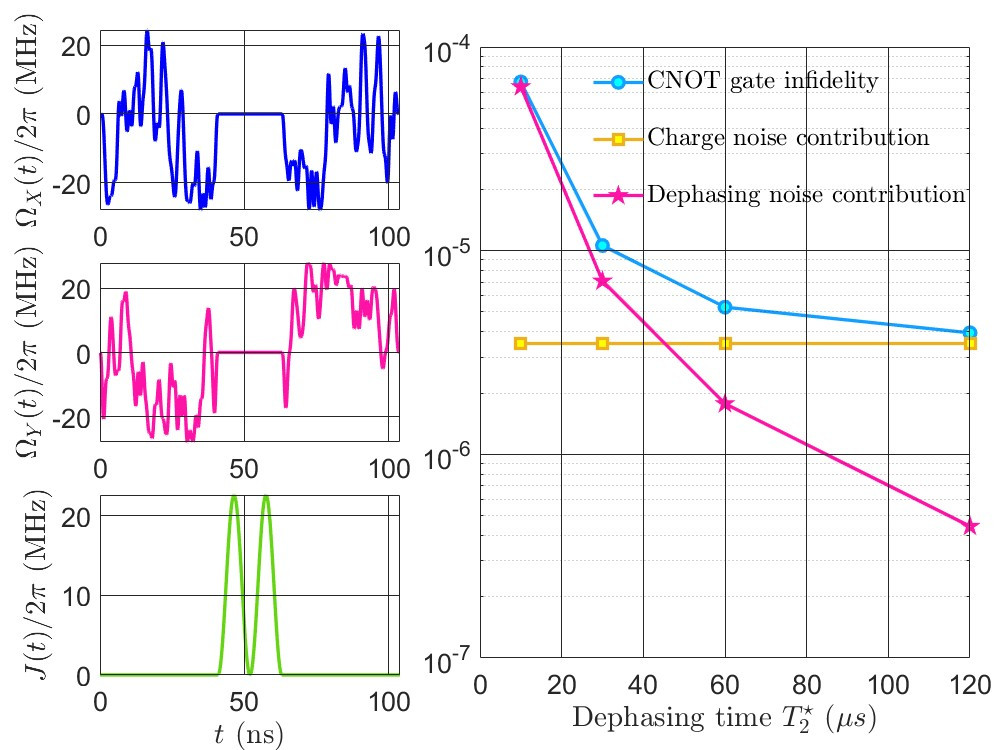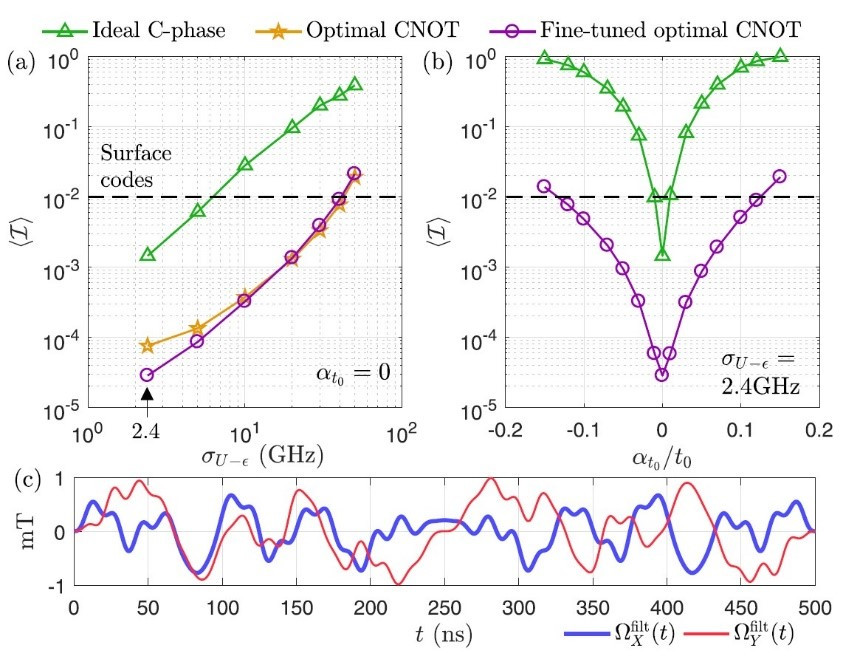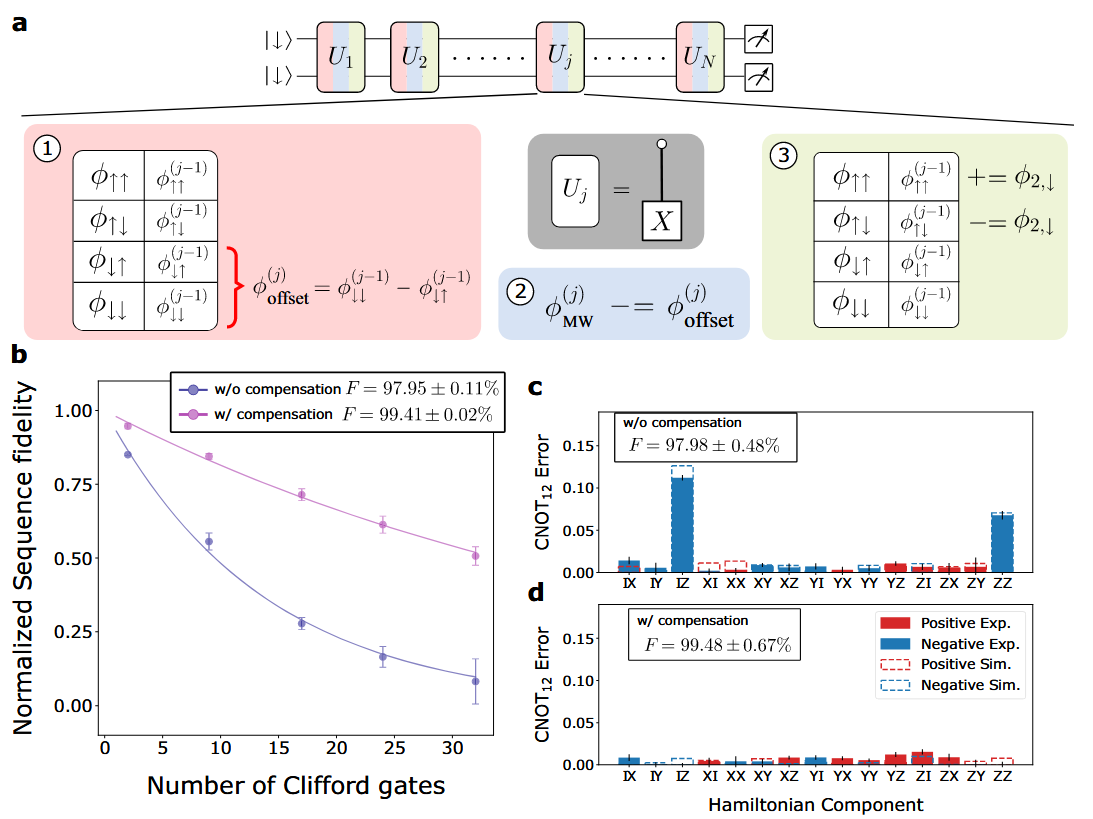第一列
This project aims to provide theoretical investigation and description for experimental realization of silicon-based quantum-dot spin qubit quantum computing. We perform device modeling to assist qubit device design and fabrication, and construct control pulses for quantum gates robust against quantum and classical noises and system parameter uncertainties with fault-tolerant gate fidelities. We actively collaborate with domestic and international teams to try to apply our optimized control pulses on real devices to realize high-fidelity and robust quantum gates. The successful implementation of the quantum gate operations would then demonstrate and enable the silicon-based quantum-dot qubits to be one of the practical physical systems for large-scale quantum computation.

High-fidelity two-qubit CNOT gate against charge noise and dephasing noise by the optimized control pulses for quantum-dot spin qubits with tunable coupling (numerical simulation).
High-fidelity and robust two-qubit quantum gate control for quantum-dot spin qubits
High-fidelity and robust quantum gate is a prerequisite for realizing practical quantum computing. Our control method by designing the optimized control pulses can effectively reduce the gate infidelity over an order of magnitude and also enlarge the robust windows against the noise and the system parameter uncertainty as compared to the experimental method for the quantum-dot spin qubits. We will apply this technique on the realistic devices to experimentally realize the high-fidelity and robust quantum gates and will also extend this technique to multi-qubit gate control, paving the way for large-scale fault-tolerant quantum computing.

By our optimized control pulses in fig. (c), the high-fidelity and robust quantum gates against the noise and the uncertainty for quantum-dot spin qubits can be achieved as shown in figs. (a) and (b).
Reference: PHYSICAL REVIEW A 99, 042310 (2019)
Hamiltonian phase error in resonantly driven CNOT gate above the fault-tolerant threshold
Because of their long coherence time and compatibility with industrial foundry processes, electron spin qubits are a promising platform for scalable quantum processors. A full-fledged quantum computer will need quantum error correction, which requires high-fidelity quantum gates. Analyzing and mitigating gate errors are useful to improve gate fidelity. Here, we demonstrate a simple yet reliable calibration procedure for a high-fidelity controlled-rotation gate in an exchange-always-on Silicon quantum processor, allowing operation above the fault-tolerance threshold of quantum error correction. We find that the fidelity of our uncalibrated controlled-rotation gate is limited by coherent errors in the form of controlled phases and present a method to measure and correct these phase errors. We then verify the improvement in our gate fidelities by randomized benchmark and gateset tomography protocols. Finally, we use our phase correction protocol to implement a virtual, high-fidelity, controlled-phase gate.

Fig. (a) shows the protocol to compensate for the effect of the error. A table recording the phase error accumulated on all the basis quantum states is used to calculate the phase offset needed. Fig. (b) and (c) show results of benchmarking experiment where the fidelity of CNOT gate is improved to 99.5%.
Reference: Wu et al., npj Quantum Information volume 10, Article number: 8 (2024)
